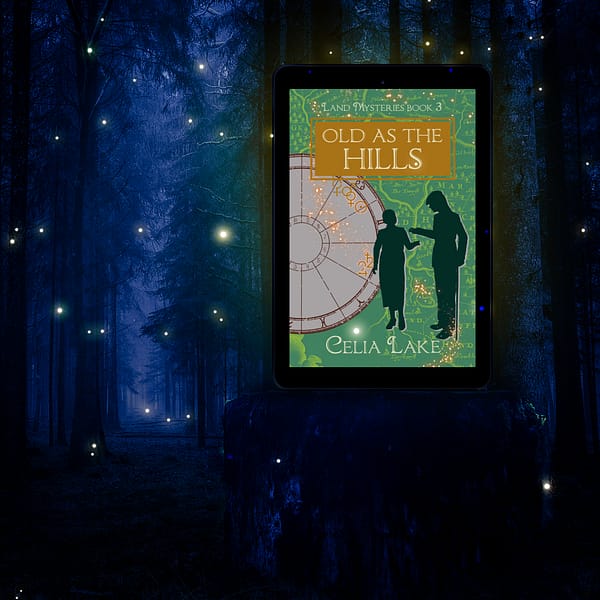Reviews are a fantastic way for readers to help out authors they want to support. But a lot of readers are nervous about what to write, where to share them, and what they ought to know about the process.
Here’s a little demystification to help. I’m focusing here obviously on books, but the same basic process can help with music, podcasts, and all sorts of other content out there.
The short version: Leaving a brief (2-3 sentence) review of books you love wherever you get or talk about your books is a fabulous way to both help other readers and the author. They don’t need to be long or complicated to help.

What kind of review are we talking about?
When authors talk about reviews helping, what we mean is usually something simple.
We’re talking about a review of one to four sentences from a real human who read the book and wanted to share a couple of thoughts. You don’t need to be elaborate and you don’t need to include tons of details. Reviews like this help provide what gets called “social proof”, that real humans read the book and had a range of feelings about it.
Detailed reviews and literary criticism are fantastic too – but they’re a completely different thing. Many people aren’t up for writing that (and certainly not about all the books or music or whatever else it was they enjoy).
Why do they help?
Reviews help readers discover books they might like – and as an author, that’s just what I want.
On a more pragmatic level, having a certain number of reviews or a particular star rating can help authors (especially indie authors like me) with some marketing and promotion opportunities. They also indicate interest in a book that can play into some of the ways that online sites use as part of their algorithms. However, the length, amount of detail, and so on don’t matter as much.
Where to leave a review?
Leave your review wherever you get your books! (I’ve included links at the end of this post to the key places for my books.)
This can include bookselling sites like Amazon, Barnes and Noble, Apple, or Kobo. You can also leave reviews at a number of sites that collect and share info about books, like GoodReads, StoryGraph, LibraryThing, BookBub, and others.
Talking about books in other places or formats (like social media, a blog, or YouTube) is also great, but the format and structure may look a little different.
Some sites have requirements before you can leave a review (for example, Amazon often rejects reviews if you haven’t spent a certain low amount via the site).
What’s helpful in a review?
Simply, think about what helps you as a reader.
In most cases, someone reading a review will have other information (like the book’s description) handy. However, it can help a lot to include a sentence or so that lets the review reader know what the book’s about. That way, if people come across your review out of context, they still have a sense of the book.
For my books, that might be something like “This 1920s historical fantasy romance…” or “This romance set in England in 1924 with magic…” or “While on a magical ocean liner crossing the Atlantic in 1901….”
Next, say a sentence or two (or more if you like) about the book. This can be things you really enjoyed or how it made you feel. It can be something about the setting or plot that caught your attention. It can be something about a character, like their profession or how they deal with a challenge.
You don’t need to give tons of plot details, but a sentence about what kind of story it is (a friends-to-lovers romance, a mystery on an ocean liner, people who get closer while working together) can be helpful. Looking at the blurb or description might be a nice reminder of key aspects.
The last thing you might want to include is something that especially caught you about a book that other readers might be looking for. A lot of my favourite comments about Pastiche have been people who feel seen and understood because of Alysoun. That sort of comment is really helpful to people looking for that kind of representation.
Does the review have to be all good?
Nope. Think about what you’d have liked to know when you were picking this book. If you generally enjoyed the book, some of that’s going to be good things about the book. If there were things that didn’t work for you, it’s useful to talk about those too. Reviews are meant to help readers.
How many stars?
Choosing the stars for the rating is a bit tricky – different sites have different customs. On many sites, it’s not going to be obvious to people reading the reviews what your personal standards are. (Some people give five stars to only their top handful of books. Other people give five stars to anything they actively enjoyed.)
Pick something consistent with how you’re talking about the book. “One of the best books I read this year” should probably get five stars. If you give it two stars, that’s confusing. A book with a “here’s some things I liked, and some that didn’t work as well for me” could be anywhere from two to four stars depending on the balance and how you felt. A book you didn’t finish might well be one star.
What’s not helpful in a review?
The most unhelpful thing is being unfair, especially in ways that aren’t useful to other readers.
Sometimes reviews blame the wrong person for a problem. For example, if a print book you order online turns up battered, it’s probably not the author who’s responsible for shipping it. You should absolutely check with the shipper about a replacement or refund if it’s not usable, but don’t rate the content of the book poorly because it got to you in rough shape. (Or ignore the content entirely in complaining about the shipping.) For reviews about books, the assumption is that the rating on the review is mostly about the content of the book.
Or I’ve seen some reviews from someone who ordered the wrong book, didn’t like the one they got, and reviewed it badly. Sometimes these are just “I hate this entire genre.” That’s not helpful to other readers, who do like that genre! (These people are not likely to be reading this post, though.)
In general, for a shorter review, getting deeper into the plot details can be tricky. Some people like plot spoilers or don’t care about them, other people really don’t like them. Maybe save the spoiler details for a format where people can decide whether to read them or not (somewhere that lets you click a “read more” tag, or scroll down the page easily, which is usually not the storefront review sites.)
Do authors read reviews?
Some do and some don’t.
I believe reviews are for readers. I skim mine every few months just in case there’s something that I can do that’s useful. A couple of times people have mentioned minor glitches in a book, and I am glad to fix those! Easier if you tell me by my contact form, though.
Mostly, though, I don’t read them because that’s reader space. Same way I sometimes come across things about my books, but I won’t respond unless someone tags me into a conversation or maeks it clear they welcome comment from authors in that space.
Places to leave reviews
Here are links to my profile pages on various sites if you want to leave a review for my books. You can also use these to find the other authors you want!
Some sites collect reviews in various ways, like BookBub, GoodReads, and LibraryThing. You can also check out the major ebook sales sites. Here are my pages on the major ones.
Got questions?
If you’ve got a question about reviews as a reader, feel free to drop me a note and I’m glad to do some future posts or additions to this one.
